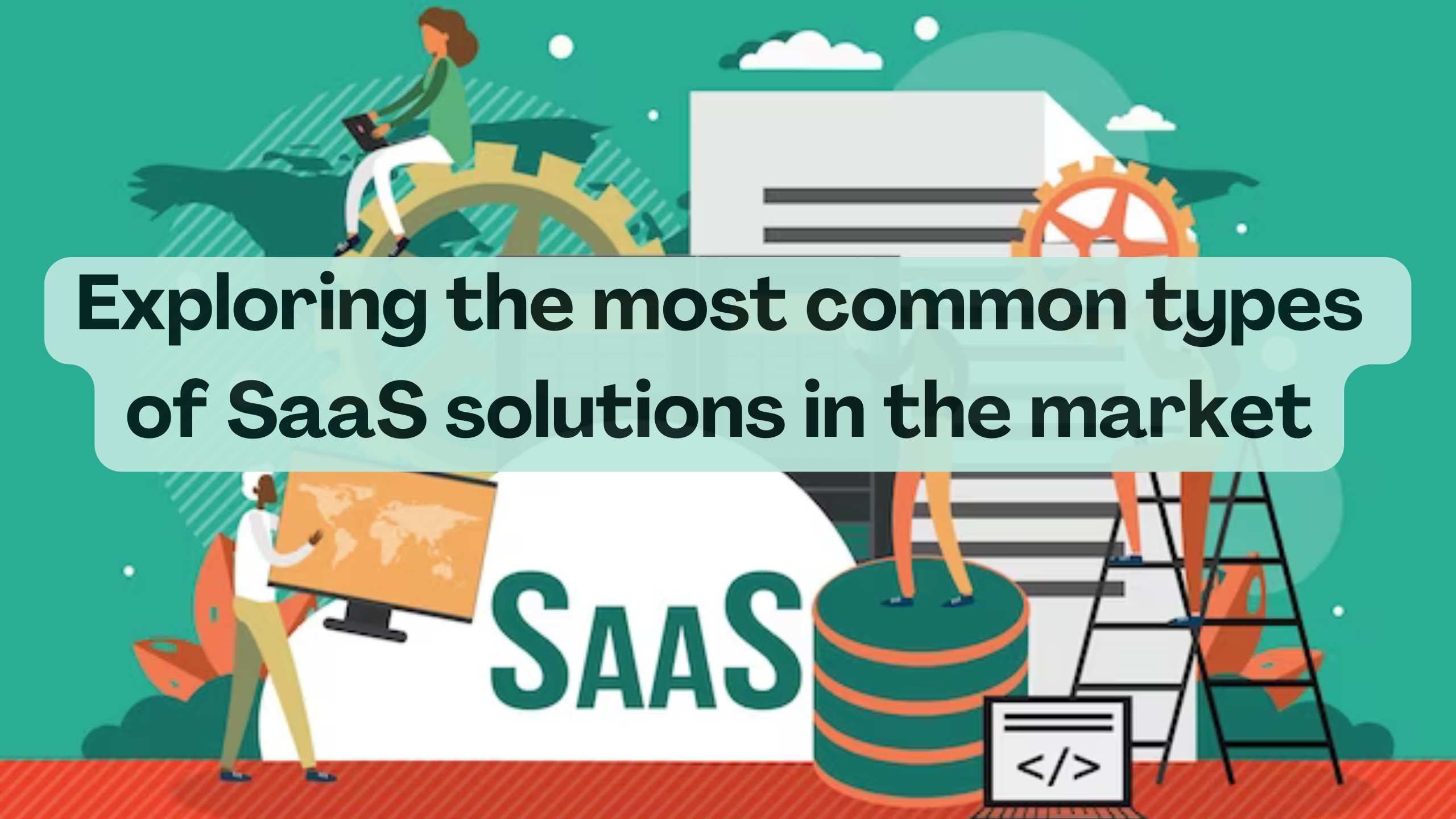Exploring the most common types of SaaS solutions in the market
- Expense Management Software Credit Cards Investing Business Solutions


Exploring the Most Common Types of SaaS Solutions in the Market
In the ever-evolving landscape of technology, Software as a Service (SaaS) solutions has become the backbone of modern business operations. Businesses are continuously exploring and adopting various SaaS tools to streamline processes, enhance collaboration, and boost overall efficiency. This article provides an in-depth exploration of some of the most common types of SaaS solutions dominating the market, catering to the diverse needs of businesses across industries.
Navigating the SaaS Landscape
1. Customer Relationship Management (CRM) Systems
Customer Relationship Management (CRM) systems have become indispensable for businesses aiming to build lasting relationships with their customers. Platforms like Salesforce and HubSpot offer a comprehensive suite of tools to manage customer interactions, automate sales processes, and drive targeted marketing campaigns. These systems provide a centralized hub for customer data, empowering businesses to deliver personalized experiences and drive sales growth.
2. Project Management Tools
Efficient project management is crucial for the success of any organization. Project management tools such as Asana and Trello have gained widespread popularity for their ability to streamline project workflows, enhance collaboration, and ensure timely project delivery. These tools facilitate task assignment, progress tracking, and seamless communication among team members, fostering a productive and transparent work environment.
3. Communication and Collaboration Platforms
In the era of remote work and global teams, communication and collaboration platforms play a pivotal role in connecting team members. Tools like Slack and Microsoft Teams offer real-time messaging, file sharing, and integrated collaboration features. By reducing reliance on email and providing a centralized communication hub, these platforms improve team collaboration and efficiency.
4. Accounting and Financial Management Software
Managing finances is a critical aspect of running a business. Accounting and financial management software such as QuickBooks and Xero automate financial tasks, including invoicing, expense tracking, and financial reporting. These platforms provide businesses with accurate insights into their financial health, ensuring compliance with accounting standards and regulations.
5. Human Resources (HR) Management Systems
Human Resources (HR) processes involve complex workflows that can be streamlined with the help of dedicated HR management systems. Platforms like BambooHR and Zenefits offer solutions for employee onboarding, payroll management, and performance tracking. These systems simplify HR tasks, enhance employee engagement, and contribute to maintaining a compliant and efficient workforce.
The SaaS Advantage: Streamlining Business Operations
The common thread among these SaaS solutions is their ability to simplify and enhance specific aspects of business operations. By leveraging these tools, businesses can achieve the following advantages:
- Efficiency: SaaS solutions automate repetitive tasks, allowing teams to focus on more strategic activities, thereby increasing overall efficiency.
- Collaboration: Communication and collaboration platforms break down geographical barriers, fostering seamless collaboration among team members, irrespective of their locations.
- Scalability: SaaS solutions are designed to scale with business growth, ensuring that the tools can accommodate increased workload and user requirements.
- Data Security: Most SaaS providers prioritize data security, employing robust measures to protect sensitive information and maintain compliance with data protection regulations.
- Cost Savings: The subscription-based model of SaaS often translates to cost savings for businesses, as they can avoid hefty upfront infrastructure costs and ongoing maintenance expenses.
Conclusion: Leveraging SaaS for Business Growth
In conclusion, the adoption of SaaS solutions is not just a trend but a strategic move for businesses aiming to stay competitive in today’s dynamic market. The versatility and scalability of SaaS tools make them an integral part of the modern business ecosystem. As technology continues to advance, businesses should remain proactive in exploring and implementing SaaS solutions that align with their specific needs and growth objectives. Elevate your business with exclusive deals on top-tier SaaS tools available at Subscribed.FYI. Whether you’re seeking CRM solutions, project management tools, or HR management systems, Subscribed.FYI offers curated recommendations and secret deals to optimize your operations.
Relevant Links for SaaS Solutions Exploration
- Salesforce
- HubSpot
- Asana
- Trello
- Slack
- Microsoft Teams
- QuickBooks
- Xero
- BambooHR
- Zenefits
- Subscribed.FYI
- Subscribed.FYI Deals








